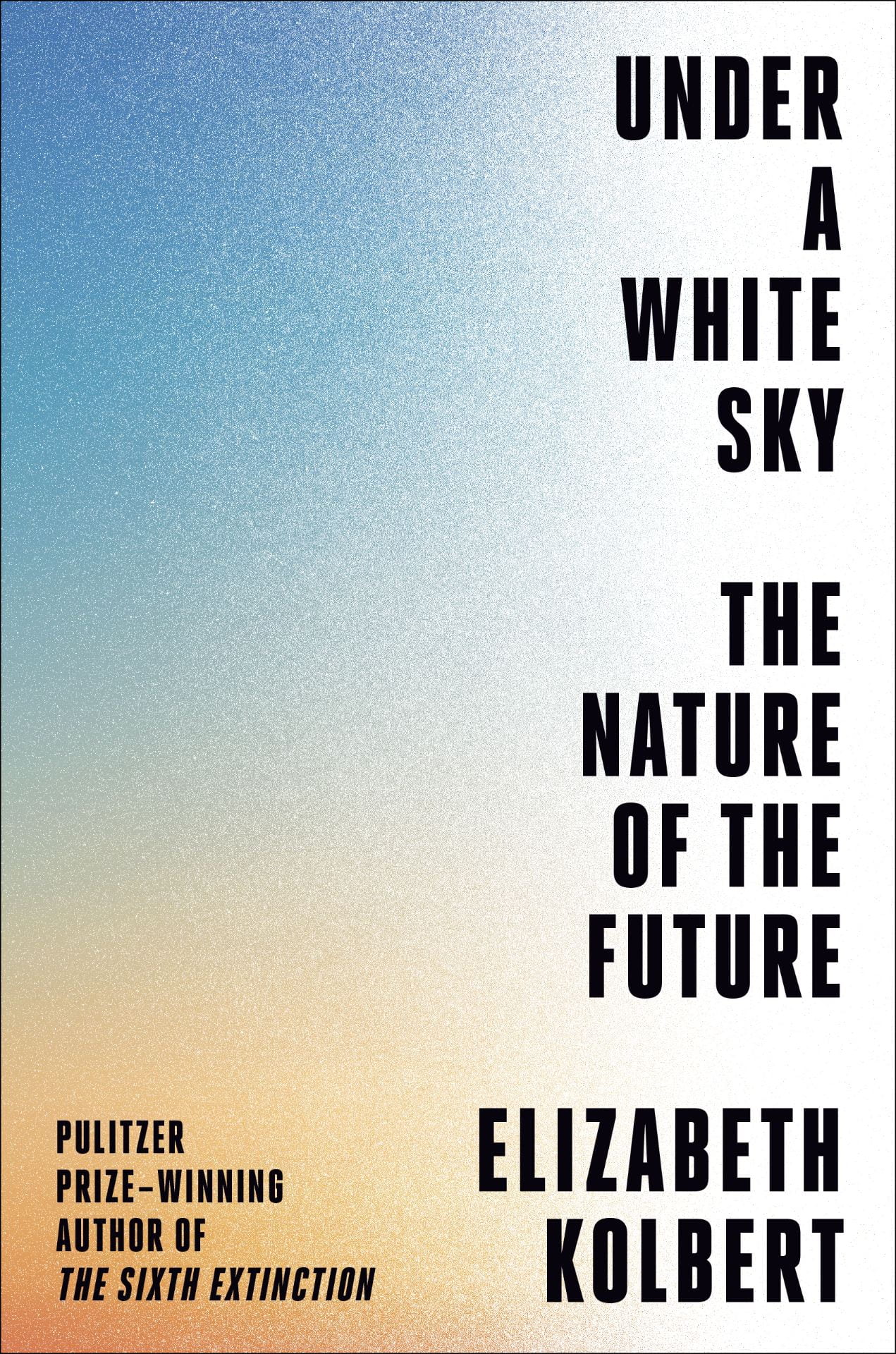
In Under a White Sky, author Elizabeth Kolbert presents readers with what she calls the “Anthropocene irony.” After all that humans have done to destroy nature, is ingenuity now its only hope of survival? A search for answers sends her packing from Moku o’ Lo’e to the Mojave Desert to Melbourne and more than a few other places in between. In a grand display of human hubris, Kolbert finds engineers, scientists and entrepreneurs trapped in an infinite cycle of inventing new solutions to the problems created by old ones. With a whole lot of imagination, it might work. Probably not. But one thing’s for certain– there’s no going back now. It’s a new kind of world.
About the Author
Revered as one of America’s best science and nature writers, Elizabeth Kolbert is the author of Pulitzer prize-winning The Sixth Extinction: An Unnatural History and Field Notes from a Catastrophe: Man, Nature, and Climate Change, one of the New York Times Review’s 100 Notable Books of the Year (2006). A staff writer at The New Yorker since 1999, she’s written dozens of pieces for the magazine. Her work has also appeared in the New York Times and New York Times Magazine, Vogue, Mother Jones and more.
Praise from UD Experts
“In her new book, Under a White Sky, Elizabeth Kolbert explores the complex impacts of large-scale technological solutions to environmental problems. Starting with an exploration of the downstream consequences the establishment of the Chicago’s Sanitary and Ship Canal had on the Mississippi River, and ending with a discussion of whitening the sky by adding reflective aerosols high in the atmosphere to decrease solar heating, Kolbert guides readers through the intertwined impacts and feedbacks that human-developed control on natural systems can have. Under a White Sky demonstrates that humans have the capacity and creativity to develop large-scale technological solutions that may be necessary to address challenges in the climate system, but emphasizes that such approaches must be developed thoughtfully with an eye to long-term, far-reaching impacts.” – Dana Veron, Associate Professor of Geography and Spatial Sciences and First Year Seminar Instructor
“A highly engaging and insightful overview of some of our most pressing environmental crises; the short-sightedness (and greed) that caused them; and how, with a bit more humility and attentiveness to the natural world itself, we might extricate ourselves from problems we have caused for ourselves, our incredibly beautiful biosphere, and creatures large and small across the planet.” – Mckay Jenkins, UD Cornelius Tilghman Professor of English, Journalism and Environmental Humanities


